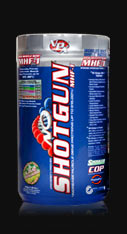 For many items marketed today, the term "on steroids" has entered the American lexicon as a term descriptive of some form of extreme enhancement, however with an attitude that this enhancement is benevolent. "On steroid" denotes added value to a product or service which represents an overly supped-up and limited example of the standard iteration. This axiom is applied with great success in the marketing of a vast array of products and services. For instance, a Corvette ZR1 is a standard Corvette “on steroids.” It features tons of performance enhancement - some of which might not even be allowed according to the rules of certain racing organizations - that create a more powerful, faster, more aggressive version of the standard model, and costing twice as much.
For many items marketed today, the term "on steroids" has entered the American lexicon as a term descriptive of some form of extreme enhancement, however with an attitude that this enhancement is benevolent. "On steroid" denotes added value to a product or service which represents an overly supped-up and limited example of the standard iteration. This axiom is applied with great success in the marketing of a vast array of products and services. For instance, a Corvette ZR1 is a standard Corvette “on steroids.” It features tons of performance enhancement - some of which might not even be allowed according to the rules of certain racing organizations - that create a more powerful, faster, more aggressive version of the standard model, and costing twice as much.
The term also offers a quantitative value when implying more = good: A new FCC ruling will bring us WiFi “on steroids.” Apple’s forthcoming iPhone 5 will be “remote computing on steroids.” NASA has discovered solar flares so large and so powerful they call them - you guessed it - “solar flares on steroids!”
The term has been used to denote a more powerful, bigger, better, more desirable version of just about anything to a diverse demographic. Regardless of if you even know anything about human endocrinology, you do know that the idea of anything being “on steroids” is an attractive and desirable attribute that is worth a premium over the asking price of the benign, unenhanced, models. That’s a given; cars, software, insurance policies, even the weather - if it’s “on steroids” you’re going to get more - a lot more - than if “steroids” were not mentioned. And for many, that is perfectly acceptable.
Now, lets talk about athletes. Baseball and football players, boxers, track athletes, cyclists, etc., are all worth less if they are “on steroids.” Why is that? If a car is “on steroids” it’s more desirable and cost more. But if a baseball player is on steroids he sucks and is barred from Cooperstown even if he hit more home runs than any other baseball player in history. In America, we have this little conundrum that begs to be answered: Car on steroids = good. Athlete on steroids = bad. Why?
You can’t blame the government. Clearly they have no idea what they’re talking about, and rarely do. in this case, the government that demonized steroids and made them a controlled substance is the same government that approved their use in the first place, allowed pharmaceutical behemoths to sell steroids for decades, then tried to curb their use by warning that steroids didn't help athletes, and bungled attempts to remove them from the market. Athletes continued to use them while the media claimed they would leave a trail of cancerous body parts, hardened livers and exploded hearts in their wake. Yet, at the same time, doctors prescribed them to sick patients in order to make them well.
Accordingly, here’s the the second part of the conundrum: Healthy athlete + steroids = sick. Sick patient + steroids = well. The question you need to ask in light of the foregoing is, “how do the steroids know what to do?” How do they know if they should make someone sick or cure them?
Clearly with respect to the establishment fighting the war on steroids, as well as casualties who get caught using them, the principle side effect of steroids, in 100% of the cases studied, is lying.
Now, we can all understand the idea of users insisting they don’t use gear and the lies to support their position. However, the American Medical Association should be held to a higher standard. But, apparently, all those good doctors could figure out to do when it was time to take a position on steroids was to collectively shove their heads in the sand. To wit; in 1988, The AMA approved a revision to their prior ambiguous statement regarding the ergogenic effects of steroids. This revision made it onto every label of steroids made in the US. It reads, in capital letters: ANABOLIC STEROIDS HAVE NOT BEEN SHOWN TO ENHANCE ATHLETIC ABILITY.
The matter was comical to anyone who knew better, and those athletes continued to take steroids and prosper. All the while the media insisted they would all die a gruesome death and die in disgrace in front of the impressionable youth above whom you have been unwittingly cast as their role model. The only problem with the AMA’s position and the alarmist media darlings is that what they were all saying - with a voice of authority - wasn’t true. Where are the bodies?
While mangled tales of woe were being dragged through the press, reversing hero’s roles and turning them into villains; exposing their foibles - casting them as liars, cheaters, robbers of our youth’s innocence for using steroids, America embraced the idea of “on steroids” and welcomed it with open arms to the degree that not a single eyebrow would raise today if an ad for a vitamin fortified baby formula was tagged with the line, “it’s like mother’s milk on steroids.”
So, are steroids good or bad? Pragmatically, you have to look at it this way: steroids are drugs. And there is no such thing as a “safe” drug. So, in any risk to benefit assessment, there is something to consider. Having said that, it is more steroid’s effects that have us endeared, not the actual drugs. If “steroid-like” effects could be attained through alternative means, then the nefarious aspect of the drug is mitigated and the resulting benefits free of guilt. Such sound logical fuels that demand and an entire cottage industry has sprung up supporting the pervasive idea that appearing like you are “on steroids” is a good thing. The only problem is that to the vast majority of purveyors of “steroid-like effects” the term was merely a clever marketing metaphor. Any assessment of their products would leave you with the conclusion that the only way to realize “steroid-like” effects was to actually take steroids.
Would it be too much to ask that any company selling a product that promises “steroid-like” effects to actually conduct a study using that product and compare the results to the effects steroids have on an athlete? Apparently, that’s a tall order as evinced by the paucity of credible research that shows any product rivaling the results of steroids. But that’s not to say there aren’t any.
Yes, I’m going to plug my employer, VPX/Redline here. I can because I’ve read this study: http://www.vpxsports.com/scientific-studies/university-studies/effects-of-28-days-resistance-exercise And, I use the product. The conclusion I find is this: While this product does not claim “steroid-like” results, any clinician will tell you that, based on the case findings, the only thing that could be more effective in building lean mass is, in fact, steroids.
I think these findings are significant because they seek to alleviate a conundrum of the human condition: appearing “on steroids” = good. Actually being on them = bad. Think about it....
 Do you want mind blowing workouts, skin bursting muscle pumps and massive increases in lean muscle tissue? Try VPX No-Shotgun MHF-1 Today!
Do you want mind blowing workouts, skin bursting muscle pumps and massive increases in lean muscle tissue? Try VPX No-Shotgun MHF-1 Today!






